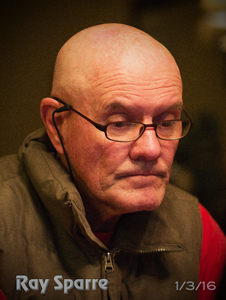
Hi, Zane.
Can you handle a bit of corny poetry? Here goes…
Lots going on. Still not sure how our car situation will be resolved. We’re soon to be off to an appointment in Albany for the purpose of checking out some options.
I hope you will give some careful thought to the content of this essay. It’s important that you make decisions concerning what you choose to believe as true and valid. I believe that far too many people, even Christians, ignore or minimize the reality, influence, and presence of evil spirits—as if they are in a class with fairy tales, folklore, or mythology. It’s not objectively possible to be a balanced Bible believer without also believing in the realm of spirits—both good and evil.
Have a great day. Love and prayers—Tua/Ray.
There is obviously a lot of spirit activity going on here beyond what the account actually describes. What would cause this demon-possessed man to run to Jesus and both identify Jesus’ deity and plead for His mercy in His treatment of them? (It’s happened before. See also 1:23-24 and 3:11-12.) Why didn’t the demons run away from Jesus rather than run to Him? I can only conclude that these demons were simply over-powered by the sovereign Spirit of God, or by angel-spirits behind the scenes of visibility, forcing them to identify themselves, to confirm Jesus’ identity, and to vindicate Jesus’ ministry that He came “to proclaim freedom for the captives and release from darkness for the prisoners” (Is. 61:1).
It also seems clear to me that the demon-possessed man was not the only one who was demon-influenced. It looks like the whole community was under a spell of darkness. Why else would they want to cast Jesus out of their area just because He cast demons out of one of their accepted community amusements? The general attitude of that community seems to be, “Don’t bother us, Jesus! Please leave! We quite like our demons!” Remember that the demons pled with Jesus again and again not to send them out of the area.” The demons clearly liked it there. I think there were too many willing subjects—too many accommodating dwelling places. Maybe it was one of their strongholds. The fact is they did not “leave the area.”
What is the value of this kind of exposure and conjecture? For one thing, I think it helps us understand that there is a good deal more spirit activity mixed into the affairs of men than is revealed by our physical perception of things. This limited understanding is sufficient to motivate us in the direction of being Spirit-filled people of God, capable of seeing “what is unseen” (II Cor. 4:18) and exercising the authority of Christ over darkness in the vital ministry of proclaiming “freedom for the captives.”